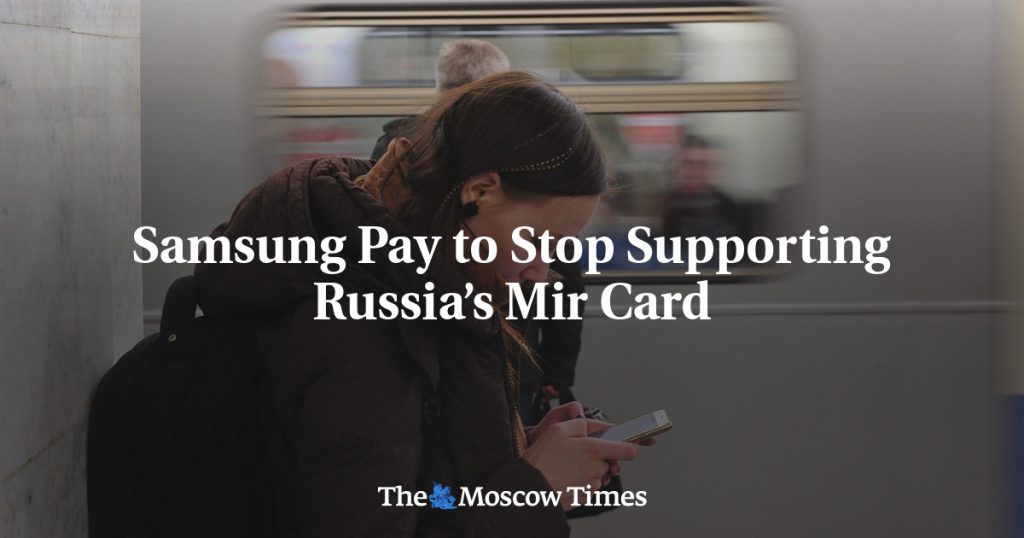Samsung has announced that Russia’s Mir payment system will no longer be available on its mobile payment service starting April 3, 2024. This decision comes in the wake of the United States imposing sanctions on Mir’s operator, the National Payment Card System, as part of broader penalties against Moscow in response to the invasion of Ukraine. The move by Samsung follows similar actions taken by Apple Pay and Google Pay, which cut ties with the Russian payment system shortly after the invasion.
More than half of Russia’s population is estimated to have a Mir card, as Visa and MasterCard ended global support for their cards issued by Russian banks, rendering them unusable outside of the country. Samsung Pay’s decision to discontinue support for Mir cards will impact users who rely on this payment system for their transactions. However, Samsung Pay will continue to work in the Republic of Belarus without any changes, allowing users to add and use Visa and MasterCard cards from partner banks in the country.
While Samsung Pay has made the decision to remove Mir from its platform, it is not the only digital wallet service to do so. Apple Pay and Google Pay have also ended their support for Mir, further isolating the Russian payment system from major international platforms. In addition to these actions, the Google Play store reportedly removed the Mir Pay app, though no official statement has been issued by the company. These moves reflect the growing backlash against Russian financial systems following the invasion of Ukraine and the subsequent sanctions imposed by Western countries.
The impact of these decisions on users who rely on the Mir payment system for their daily transactions remains to be seen. With major international platforms cutting ties with Mir, Russian consumers may face challenges in using their cards outside of the country. The loss of support from Samsung Pay, Apple Pay, and Google Pay could further restrict the ability of Mir cardholders to make payments and transactions in foreign markets, potentially affecting their financial activities and convenience.
As more companies and platforms distance themselves from the Mir payment system, the future of Russia’s domestic financial infrastructure may be at risk. With limited support from international partners, Russian consumers and businesses may need to seek alternative payment methods to navigate the changing landscape of the global financial system. The ongoing repercussions of the sanctions imposed on Mir and other Russian financial institutions underscore the broader impact of geopolitical tensions on everyday financial activities and cross-border transactions. The evolving situation will likely continue to shape the financial ecosystem in Russia and beyond as companies and individuals adapt to new realities.


